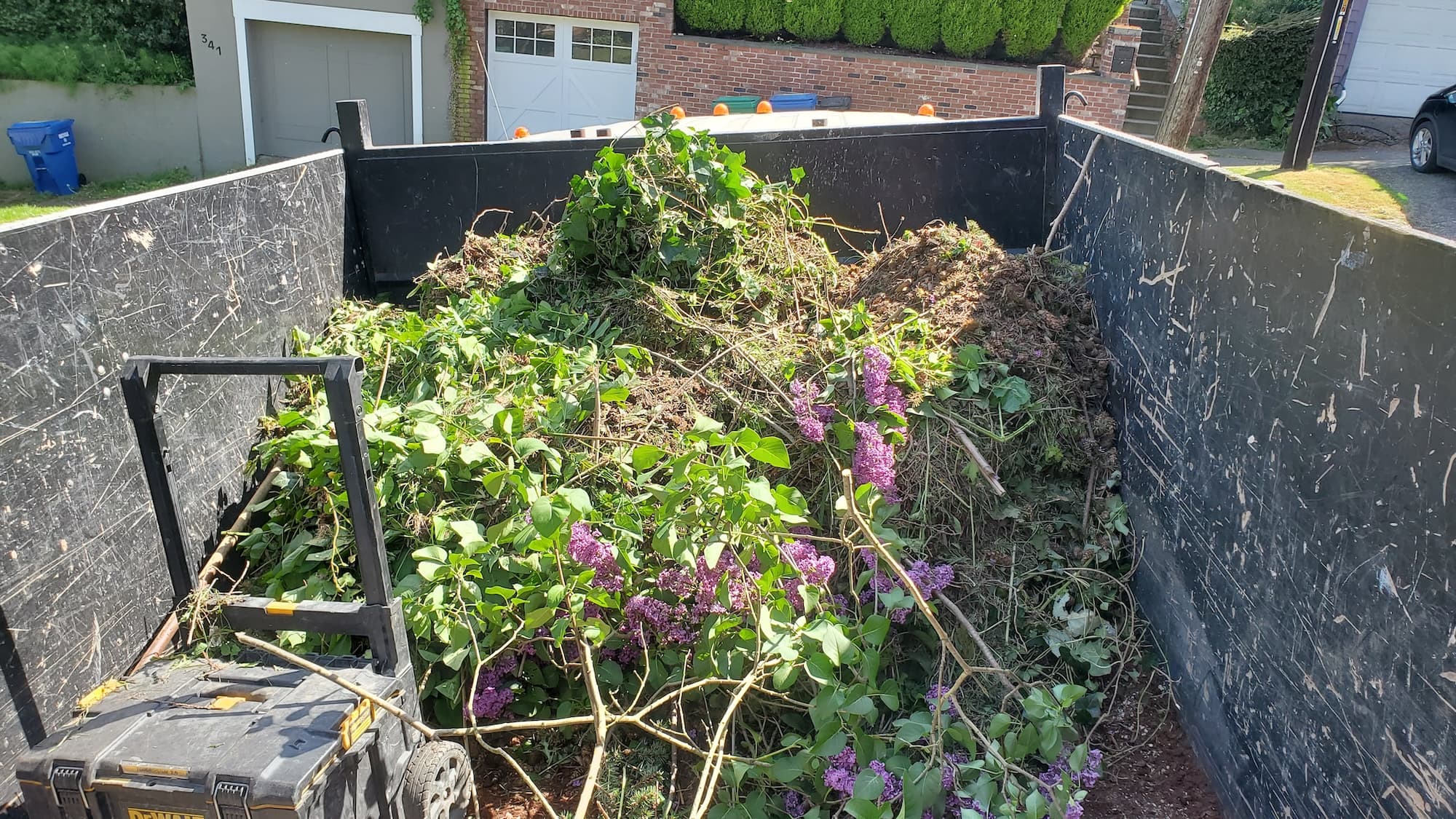West Seattle Clear vegetation from fences
Homeowner’s Issue
If you live in West Seattle, you know the drill: heavy fall and winter rains, moss-friendly shade under big maples and cedars, and aggressive vines—ivy and Himalayan blackberry—climbing fences and squeezing posts. Many properties around Alki, Lincoln Park and the Admiral District sit on compacted, silty soils that hold water and invite rot at the base of wood fences. Sun exposure is inconsistent: sun-baked south-facing strips dry fast in summer, while north-facing yards stay damp and green all year. Slopes in Fauntleroy and higher parts of the Junction funnel runoff to fence lines, making drainage and root competition a recurring problem.
HOA rules and curb appeal matter here—overgrown fence lines reduce property value and can violate sightline rules on corner lots. Pests and volunteer shrubs find shelter in tangled growth, and once roots hook into posts, repairs get costly. Our approach avoids herbicides: we use hand tools, careful root removal, organic mulch, and targeted planting to suppress regrowth. That means better ventilation around the fence, less moss, improved drainage, and longer life for your fence without toxic chemicals—practical, local, and built for West Seattle’s microclimates.
Our Quality Service
We clear fence-lines by hand and with light power tools when needed, focusing on sustainable, low-impact methods. Typical visit: assessment, selective cutting, root-out of invasive runners, debris haul or green-bin prep, and mulch or gravel placement for suppression. Jobs usually take 2–6 hours for an average lot; larger properties or heavy ivy can take a full day or be scheduled in phases.
Local insight: we always check slope, soil compaction, and downhill drainage, and avoid disturbing native shrubs or erosion-prone banks. We time major cuts for dry windows (late spring–early fall) to reduce soil compaction and resprouting. No herbicides, ever.
Benefits: safer fences, better curb appeal, reduced rot, lower maintenance, and longer service life for posts and rails.
What’s Included
- Inspection of fence-line and access points.
- Hand-pruning and mechanical trimming of vines, brambles, and overgrowth.
- Root and rhizome removal for blackberry, ivy, and other invasives.
- Brush chipping and haul-away OR green-bin prep (your choice).
- Optional mulch or gravel bed along the fence to suppress regrowth.
- Edge trimming for a clean boundary.
Options / Upgrades:
- Mulch + landscape fabric (sustainable, limited use) for high-traffic borders.
- Organic moss control (mechanical removal + improved airflow) — no chemicals.
- Planting low-maintenance, native hedging or pollinator strips.
- Full haul-away to a yard waste facility vs. sorting for city green bin.
Before & After / Expectations
Expect noise, cut branches, and temporary disturbance to the ground immediately after work. We separate wood for chipping, bag or load green waste, and sweep pathways. Access: a 3–4 ft clear path beside the fence helps; we’ll discuss staging areas during the estimate. Jobs involving heavy ivy or blackberry may require two visits: initial removal and a follow-up to catch resprouts.
Care tips for West Seattle:
- Water new plantings only in summer drought windows; avoid watering in rainy season.
- Keep a 6–12” mulch band to limit weed seed contact with soil.
- Inspect fence bases after heavy storms; clear debris that holds moisture.
- Expect peak regrowth in spring; plan a light follow-up within 6–12 months.
FAQs
Q: How long before regrowth returns?
A: For vigorous invasives like ivy or blackberry, expect surface regrowth in 3–6 months unless roots are removed; mulch and follow-up checks cut that back significantly.
Q: Will you use herbicides?
A: No. We use mechanical and cultural controls only—root removal, mulch, hand-pulling, and selective replanting.
Q: Do you haul debris away?
A: Yes. Choose full haul-away to a green waste facility or we can sort and leave acceptable material for your City green bin.
Q: What about steep slopes or bluff edges?
A: We assess for erosion risk. If the fence line is on a slope, we favor minimal soil disturbance, install surface mulch/gravel, and recommend native groundcovers to stabilize soil.
Call to Action
Ready to tidy the fence line and stop the rot before it starts? West Seattle homeowners: book a free estimate and schedule a quick visit. We prioritize practical, sustainable fixes that last.
Email neatandtidyseattle@gmail.com
Phone: 206-538-9344
Mon–Sun: 9am–6pm
Licensed • Bonded • Insured










